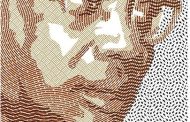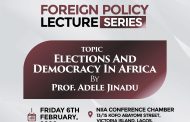When one of Nigeria’s most established dailies today sneaked into the media market in the late 1990s, it did so with an editorial entitled “On a wing and a Prayer”. The summoning in daring that the editorial embodied recommends its adoption as our own referent at the intervention as we also sneak into the market. For, we need to pray and be prayed for because we are entering the market at a most economically, politically and ideationally unclear times, both at home and in the wider world. Prayer, in this context, is as much a religious imperative as it is an appeal to the genius of hope.
Intervention is blasting forth into a fairly crowded online newspaper market. In this crowded market, each portal is fetching something while also depositing something distinct. It might take time for the reading public to arrive at a consensus on what intervention seeks to fetch and is capable of depositing. The self-understanding is, however, clear: it is journalism in the service of collective survival through a tradition of consistent mapping of the different voices and the debates, the alternatives as well as the actors in relation to the production of win-win outcomes rather than the production of winners and losers in the society. This is, therefore, journalism about, after and beyond intervention. That is, intervention understood as society’s preventive cum correctional practices in the politics of social order. Intervention makes all the difference between the society and its survival.
To this extent, intervention has very categorical normative commitment that will not allow it observe objectivity whenever and wherever the issue in question is about right to life; end to the culture of cruelty; access to food, water and basic health; the safety of children; comprehensive elimination of nuclear weaponry and freedom of speech. These are not new values but they are the contemporary theatres where the possibility of progress faces the most entrenched challenges across the world today.
However, no such normative commitment predisposes this newspaper to accepting discrimination against any human beings on grounds of differences of race/ethnicity, religion, gender or spatiality. Nor does commitment to any such codes make the paper aspire to set moral standards for anyone; sit in judgement over anyone or expect anyone to conform to any expectations outside the established consensus for managing complexity.
The belief here is that it is possible to exist as a profitable media business while also pursuing the expansion of these normative commitments without injuring best principles in journalism since journalism itself is rooted in the best democratic traditions of letting the Others speak, participate and co-own the governance process, from the village level to the United Nations.




























